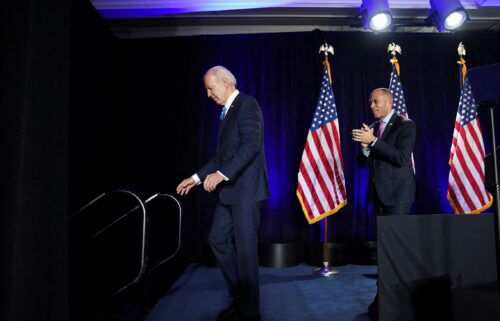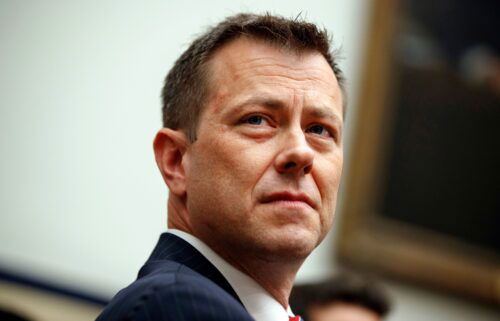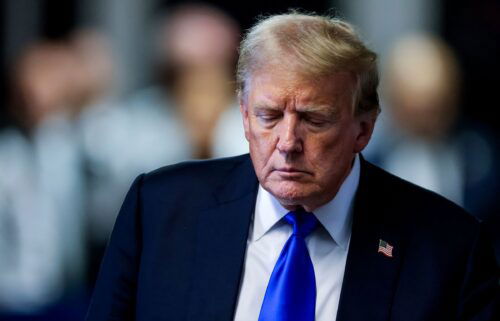Obama isn’t quite right about TV and social media

During a tech event in San Francisco last month, former President Barack Obama offered some advice on how to govern in the Oval Office. “Make sure you have a team with a diversity of opinion sitting around you. The other thing that’s helpful is not watching TV or reading social media. These are two things I would advise, if you’re our president, not to do,” he said. “It creates a lot of noise and clouds your judgment.” Obama went on to explain that worrying about polls, or the opinions of certain people, could “sway your decision-making in an unhealthy way.”
As always, Obama points us to the better angels of American politics. He makes an important point — one that feels more urgent than ever as the realms of governance, social media, and television are all blending together under President Trump.
Good leadership requires data, expertise and sound deliberations. The media often revolves around emotion, controversies, and heated discussions. Presidents have come to realize that sound decision-making requires an atmosphere conducive to cautious and balanced discussion.
As the executive branch vastly expanded in the 20th century, presidents relied on greater numbers of experts and advisers to provide them with guidance. FDR notably enlisted the help of a team of academics known as the “Brain Trust” to kickstart the American economy after the Great Depression. While FDR certainly had his eye on politics, his presidency marked a period when experts found more seats at the table.
That relationship between presidents and trusted experts continued for decades. Democratic and Republican presidents understood that they needed sound flows of information to figure out how to address the nation’s needs. On foreign policy, presidents created a vast national security apparatus at the onset of the Cold War and enlisted a defense and diplomatic corps to address how the country should deal with threats and strengthen alliances.
During the Cuban Missile Crisis in 1962, when the Soviets and the US came closer to nuclear war than ever before, Kennedy turned his advisers to help him figure out a path forward. These sources of expertise could be enormously important, as President Ronald Reagan learned when he relied on Secretary of State George Shultz and his diplomatic corps to help guide the US and the Soviet Union toward a historic arms agreement in 1987.
To be sure, the “best and brightest,” as the journalist David Halberstam famously called the experts that formed our nation’s policies, could often make massive and deadly mistakes. Horrendous policy decisions in Vietnam in the 1960s and Iraq in the early 2000s were born out of closed-door meetings with respected advisers beating the drums of war.
But those mistakes didn’t mean that the presidents were wrong about the importance of using a diverse set of expert counsel to help them reach decisions. On this point, Obama is spot on in telling presidents to avoid relying on television and social media in the decision-making process.
But the notion that the president should avoid the media is also unrealistic, and sometimes detrimental.
The problem is that politics matters even when it gets incredibly ugly and toxic. Turning on the television or scrolling through social media is not simply a distraction but also a window into the current moment. These mediums are central arenas in which parties conduct their battles. For better or worse, they tell us a great deal about the state of partisanship.
It is possible to argue that some of the problems President Obama encountered during his time in the White House stemmed from his failure to take these outlets seriously enough. With regards to the Republican Party, as he himself admitted many times, he was constantly caught off guard by how rightward the party had drifted and the kind of obstructionist tactics they were willing to employ. But it’s not like this was a hidden agenda — one only had to tune into Fox News or read Breitbart News to see what was going on with the party.
President Obama, for example, thought that by promising a health care plan that drew on Republican Governor Mitt Romney’s program in Massachusetts he would win bipartisan support. The Republican Party, he soon learned, was in no mood for compromise.
The winds of politics — whether it’s the way parties frame critical issues or the strategies used to promote or discredit presidential agendas — are relevant in policymaking, even if politicians shouldn’t have to think that way in an ideal world.
Presidents and legislators who ignore television or social media do so at their own peril. While Obama is right about the ideal ways presidents should make decisions, the reality is that politics in 2019 exists in a public square, where everyone has a megaphone. And the way these issues are handled on television and social media do matter very much.
Of course, President Trump offers a terrible model of leadership by governing via Twitter and going on tirades that appear to be spurred by conservative news shows. Whereas Obama could have benefited from paying more attention to the winds of politics, Trump has altogether abandoned expertise, hard data, and quiet deliberation in forming policy. He has thrown himself into the chaotic public square and is trying to craft a model of leadership that exists almost entirely within that world. That is a recipe for bad decisions, chaos, and political paralysis, as we have seen every day since January 2017.



